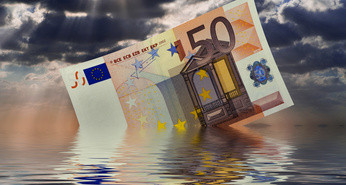EUR/USD fell to support and stalled for a while. It now resumes the downfall. It took the markets some time, but they finally digested that the Federal Reserve is no rush to print. This is also felt in a breakdown of oil price. The global slowdown is helping the dollar. In Europe, the assessment about Spanish banks’ needs seems short of mark, and so does the highly discussed German openness to new measures. Leaders of Germany, France, Italy and Spain are meeting in Rome. Will they send a message that will calm the markets.
Here’s an update on technicals, fundamentals and what’s going on in the markets.
EUR/USD Technicals
- Asian session: EUR/USD managed to stabilize around the 1.2540 line. This line is lost in the European session.
- Current range: 1.2440 to 1.2540.

- Further levels in both directions: Below: 1.2440, 1.24,, 1.2330, 1.2288, 1.22
- Above: 1.2540, 1.2587, 1.2660, 1.2760, 1.2814 and 1.2873, 1.29 and 1.2960.
- 1.2440 is still far, but it proved its strength in the past.
- 1.2587 is stronger resistance.
Euro/Dollar edges down on weak German data – click on the graph to enlarge.
EUR/USD Fundamentals
- All day – Angela Merkel, Françios Hollande, Mario Monti and Mariano Rajoy meet in Rome.Â
- 8:00Â German Ifo Business Climate. Exp. 106.1 points.
- 13:00 Beligan NBB Business Climate. Exp. -11.8 points.
For more events and lines, see the EUR/USD
EUR/USD Sentiment
- Market digests Fed decision: After the Fed decided not to introduce QE, but did announce that it would extend Operation Twist, Bernanke’s words conviced some analysts that QE3 is just one meeting away. However, the mood has significantly changed now. Dollar printing fuels the price of oil. Without QE3, we see WTI falling below $80. This also helps the dollar.
- Merkel under pressure: Germany is more and more isolated in the international scene: the G-20 summit didn’t provide any calming message, as Germany remained tough on measures to shore up the zone. The German chancellor will face more pressure in the Rome summit. Merkel is also under pressure from the German supreme court, which delays the ESM.
- EFSF to buy bonds?: With the EZ agreeing to lend Spain up to 100 billion euros to rescue its ailing bank sector, discussions have now focused on the mechanism of the loan. Spain will likely receive the funds from the EFSF as the ESM is not ready. This could kick off on July 9th. It seems that bond buying will be possible according to the rules, but the German Chancellor Angela Merkel is still reluctant to use these tools. We will likely further disagreements between Germany and other zone countries regarding the bailout funds.
- Spanish yields ease for now: Yields on Spanish 10 year bonds fell nicely on the the hopes that the bailout funds could buy Spanish bonds directly. An independent assessment discussed a shortage of only 62 billion euros in the worst case scenario As with the bailout announcement, that had 8 holes, also this assessment seems short of mark and could certainly be revised tot he upside. Spanish banks are not famous for their transparency. Spain is begging for ECB help, but not getting any.
- New Greek government wants a renegotiation: After months of political turmoil and deadlock, Greece managed to form a government led by Antonis Samaras, The new coalition is committed to easing the conditions of the bailout, so the EU, particularly Germany, will have to show some flexibility on the bailout terms if it is serious about keeping Greece in the EZ. There are discussions of extending the Greek targests, but Greece is likely to miss those as well.
- Moody’s sours mood: The rating agency lowered the rating of over a dozen global banks. This was rumored earlier and did not come at as a huge surprise. However, it also adds to the pressure.
- Contagion to Germany:  One more important German survey is waiting, but data so far has been awful: the ZEW Economic Sentiment PMIs both fell below the market forecast. The once invincible German economy appears to be sputtering, and this could spell disaster for the Euro-zone.
- Italy’s Monti sets alarms: The Italian PM Mario Monti asks for help from the Germans and the ECB as the situation deteriorates. The Euro-zone’s third largest economy is also suffering from a problematic banking system. This may explode later on. The economy isn’t doing much better, as GDP is squeezing fast. Italy cannot hide behind Spain for too long. If the economy continues to deteriorate, Italy could be the next EZ member to hop onto the bailout bandwagon.
- New Banking Union for EZ?: At their recent summit, the G20 leaders pledged to consider concrete steps towards a more integrated financial system, including common banking supervision and firm guarantees to repay bank depositors. A European fiscal and banking union would strengthen the euro, bolster the EZ’s anemic growth and lower the high borrowing costs faced by counties with large debts. Such a program could take years to fully implement, but at least the leaders are discussing concrete measures to combat the severe debt crisis.



